Controls in the Toileting Center
Toilets with the push lever centered on the top of the tank are a great universal concept in that they are easy to use with equal access from either side, however, the unique location my confuse some people with cognitive or visual impairments. Standard flushing levers should be on the approach side of the toilet, and a lever extension may be added to make flushing easier. Better yet, toilets with an automatic flush will improve sanitation and odor control.
In summary, it is worth noting that technology and design are changing the toileting experience and access to it (see Figure 8.61), and the market should be explored each time a toilet is to be specified.
Privacy at the Toilet
To maximize access, provide privacy in the toileting area without using a separate compartment. For example, a cabinet, 18 inches wide by 12 inches deep by 48 inches (457 mm by 305 mm by 1219 mm) or higher, facing toward the toilet provides a visual barrier of the toilet. Drawers, tambour, or open shelves should not interfere with the toilet fixture. Continue the finished flooring under the cabinet so it can be removed if additional clear floor space is needed around the toilet.
If the space allows, accessible compartments should be at least 60 inches wide, measured perpendicular to the side wall, and 56 inches deep (1524 mm by 1422 mm) for a wall-hung toilet and at least 59 inches deep (1499 mm) for a floor-mounted toilet measured perpendicular to the rear wall.
Another concept that can be used in the accessible bathroom is to plan the toilet and shower in a combined wet area (see "Bathing and Shower Center, Doors and No-Thresholds," above) (see Figure 8.62). This concept allows turning and clear floor spaces to overlap; and access to the shower fixtures can improve personal hygiene and maintenance to the room.
Storage and Accessories in the Toileting Center
Storage near the toilet for back-up tissue rolls, towels, equipment, personal toiletries, and cleaning supplies should be within the 1 5 inches to 48 inches (381 mm to 1219 mm) reach
 |
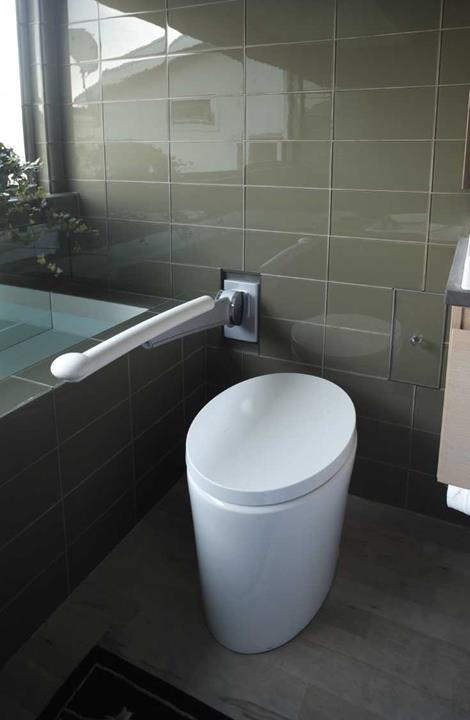 |
range and should not obstruct or protrude into the clear floor space (see Figure 8.63). Recessed shelves between studs provide storage that does not protrude, and holds a surprising amount of the items needed in this area. Rolling storage allows items to be placed within reach, and is flexible and can be moved out of the toilet center for clear floor space. Waste containers should also be planned out of the clear floor space. A child or a person needing a foot brace at the toilet will also have a step stool which must be stored out of the clear floor space as well.
 |
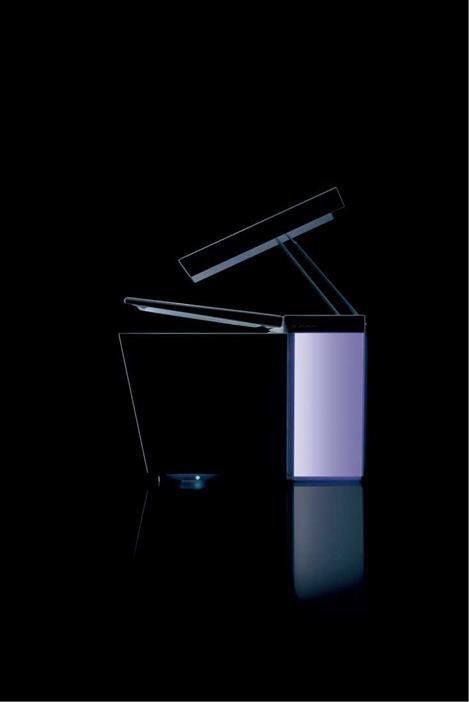 |
Keep in mind that for a person who needs a support in the toilet area, anything within reach will be used, and consider specifying only those accessories that will hold the weight and function as grab bars if called on to do so (see Figure 8.64).
When planning grab bars, placement of the toilet paper holder can be tricky. According to NKBA Planning Guideline 23, it should be 8 inches to 12 inches (203 mm to 305 mm) in front of the toilet bowl and centered 26 inches (660 mm)(Planning Guideline 23). When working with a client, it is best to determine the placement based on his/her reach, and it can either be a minimum 1 1/2 inches (25 mm) below or up to 12 inches (305 mm) above the grab bar. For a more detailed
FIGURE 8.62 The entire floor is waterproof and slopes to the shower drain in this wet – room concept.
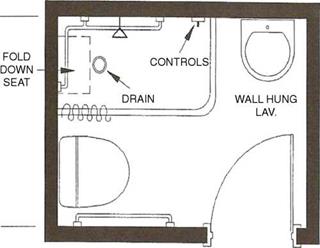
 |
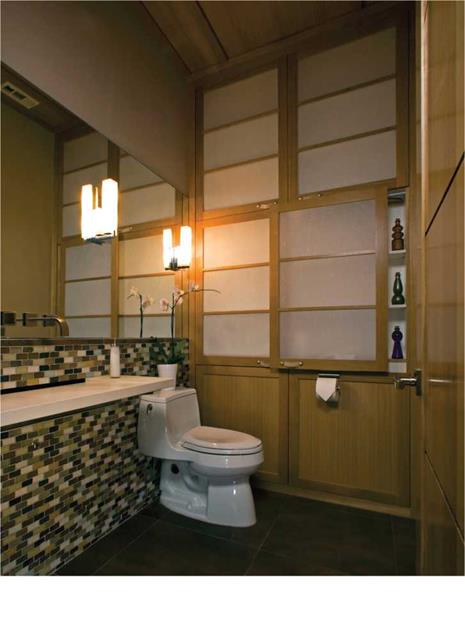 |
NKBA
 |
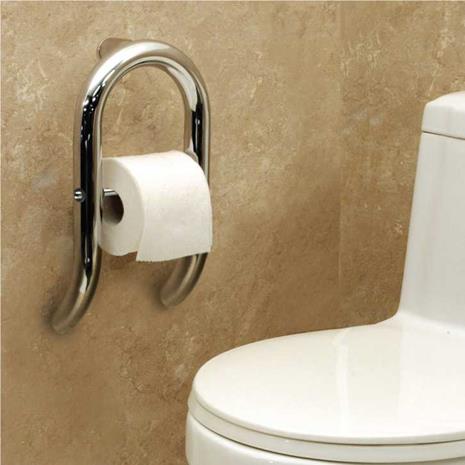 |
discussion of the best location, reference the ICC (ANSI) A117.1- 2009, chapter 6. A recessed toilet paper holder will not protrude into the clear floor space, and it prohibits someone using it for support.
A towel bar or ring within reach of the toilet may be necessary for some clients, and it should typically be placed below the grab bar.



